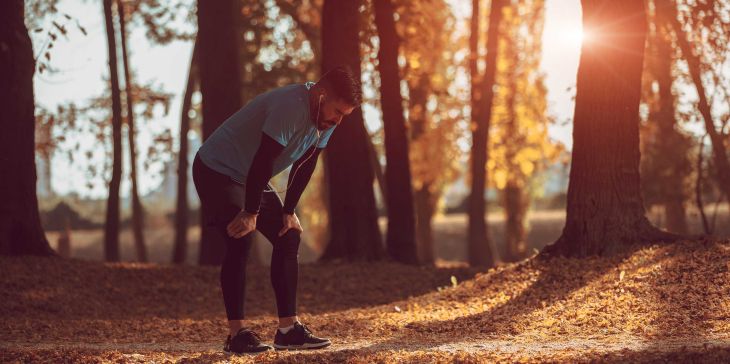Exhaustion makes us more prone to injury when we’re exercising or performing physical tasks. A group of ETH Zurich researchers led by Professor Carlo Menon, Head of the Biomedical and Mobile Health Technology Lab, have now developed a textile sensor that produces real-time measurements of how exhausted a person gets during physical exertion. To test their new sensor, they integrated it into a pair of athletic leggings. Simply by glancing at their smartphone, testers were able to see when they were reaching their limit and if they ought to take a break.
This invention, for which ETH Zurich has filed a patent, could pave the way for a new generation of smart clothing: many of the products currently on the market have electronic components such as sensors, batteries or chips retrofitted to them. In addition to pushing up prices, this makes these articles difficult to manufacture and maintain.
By way of contrast, the ETH researchers’ stretchable sensor can be integrated directly into the material fibres of stretchy, close-fitting sportswear or work clothing. This makes large-scale production both easier and cheaper. Menon highlights another benefit: “Since the sensor is located so close to the body, we can capture body movements very precisely without the wearer even noticing.”














